UN Belarus Results Report 2022 Presented in Minsk
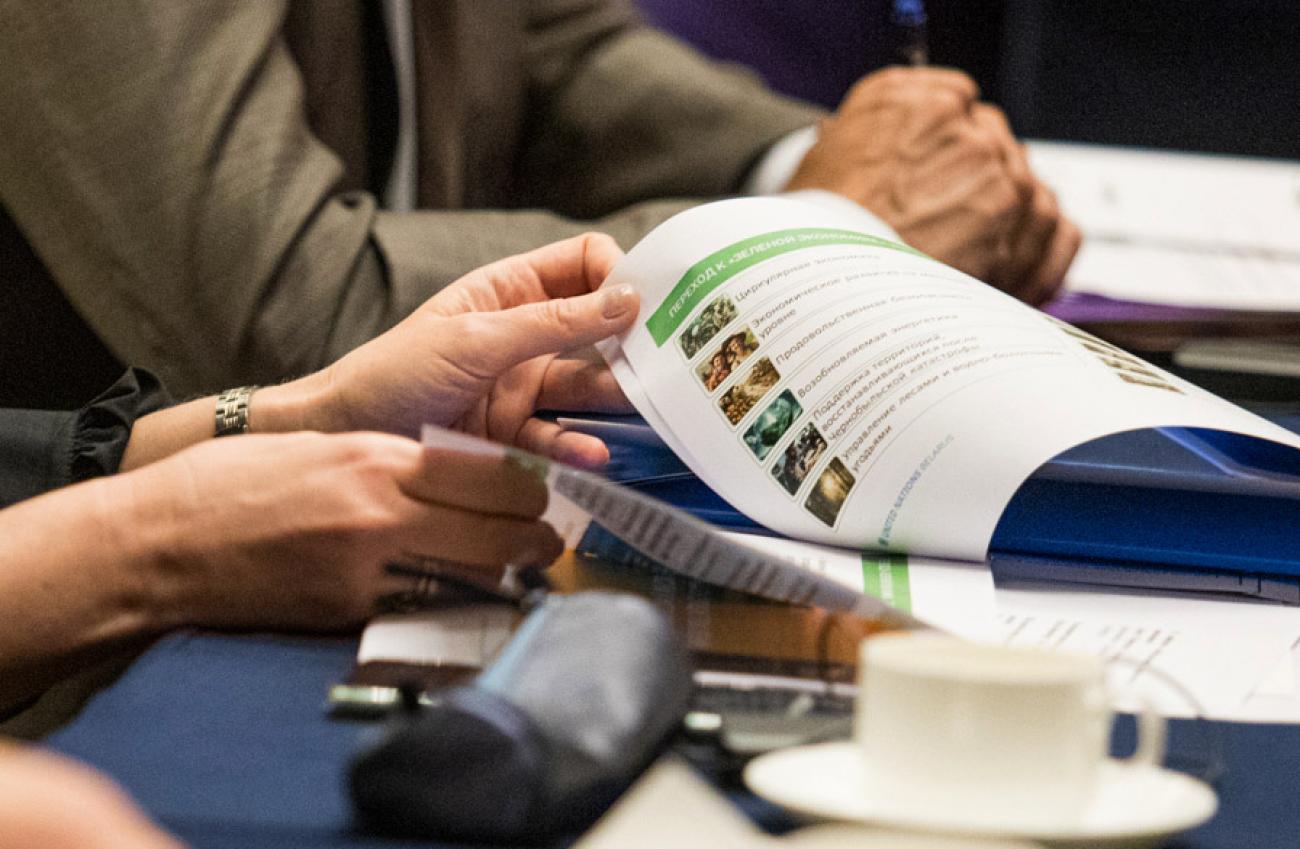
The UN Belarus Results Report 2022 was presented during the meeting of the Council for Sustainable Development in Minsk.
Valery Belsky, the National SDG Coordinator, and Erol Arduç, the UN Resident Coordinator a.i in Belarus welcomed the meeting participants from ministries, the Parliament, regional executive committees, educational institutions, nongovernmental organizations, and UN agencies.

The UN Resident Coordinator a.i stressed that the meeting of the Council for Sustainable Development bears a particular importance as the world is preparing for the upcoming SDG Summit scheduled for September 2023 in New York and the world needs the SDG Summit to send a clear message from world leaders through a strong political declaration.
The UN Resident Coordinator a.i underlined that in 2022, the United Nations in Belarus continued to be committed to advancing the SDGs and the strategic priorities that were agreed with national partners.
“We continued to focus on four key crosscutting strategic priorities: green transition for inclusive and sustainable growth, future generations orientation, digital transformation and social innovation, and gender equitable society”, said the UN Resident Coordinator a.i.
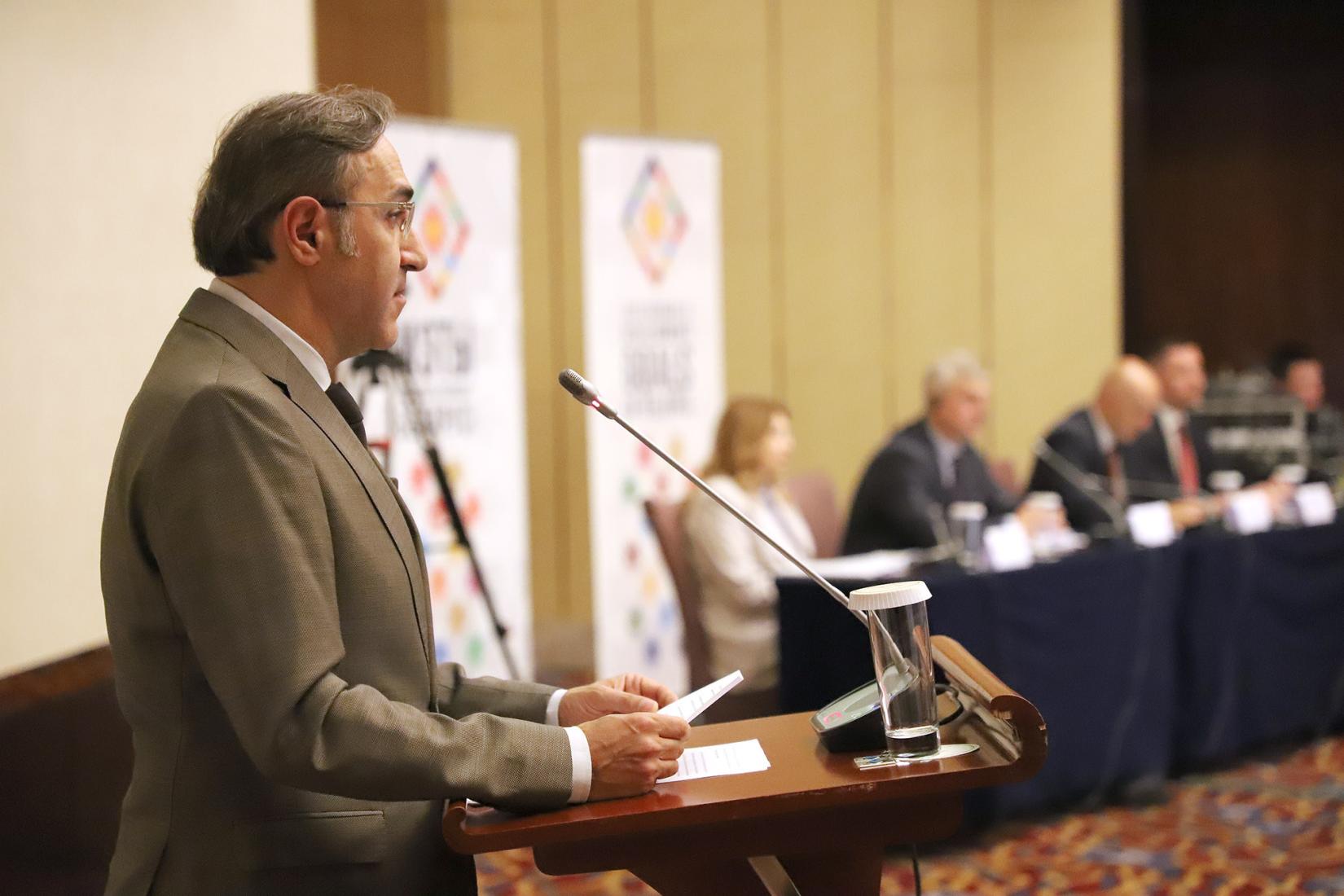
Throughout the year, the UN in Belarus promoted a green transition and climate action, allowing Belarus to make new commitments to reduce CO2 emissions from 28 to 35 percent by 2030. The UN system organizations also collaborated to empower young people in areas such as education, health, social protection and employment opportunities. Active steps were taken towards a safe and inclusive digital transformation, as well as building a gender-equitable society.
The United Nations, in collaboration with national partners, actively worked towards safeguarding the progress made towards the achievement of the SDGs amidst turbulent time: recovery after the COVID-19 pandemic, mixed migration crisis, and the conflict in Ukraine.
In his address, Erol Arduç underlined that despite another year of increased volatility and decline in funding, the United Nations in Belarus remains committed to deliver results for the sustainable development of the country, in line with national priorities, in accordance with the mandates, strengths, and expertise of each of the UN entities.
At the same time, given the challenging environment, it is becoming increasingly necessary to maintain and accelerate the progress already made towards achieving the SDGs and that is why the UN Secretary-General encourages Member States to put forward commitments on national and global levels.
“On a national level, Member States are encouraged to outline a forward-looking National Commitment to SDG Transformation – every government is urged to come to the SDG Summit with clear policies, investment plans and partnerships to strengthen action in their countries to 2030”, said the UN Resident Coordinator a.i in Belarus, expressing the hope that Belarus will put forward its national commitments to achieve the SDGs at the SDG Summit and noting the readiness of the UN in Belarus to support its national partners in this work.
As part of the meeting of the Council for Sustainable Development, following the opening remarks of the Resident Coordinator a.i., a briefing session and interactive discussion involving heads of the UN agencies and experts on the results of the work of the UN in Belarus in 2022 was conducted.
Alexandra Solovieva, UNDP Resident Representative in Belarus, focused on UN’s work in helping Belarus with the transition to green economy for inclusive and sustainable growth.

In her address she noted that the sheer scale of resources, including financial, required to move toward a green economy may represent a particular challenge. This prompts us to search for new approaches and solutions, to join our efforts to accelerate the achievement of the SDGs, following the key principle of the 2030 Agenda "Leave no one behind". The presentation of the concrete results of the UN’s work on introduction of environmental solutions in entrepreneurship, agriculture, gender equality and support to vulnerable groups showcased the critical role of green economy for local economic growth, job creation, and social and gender equality. A green economy has to be attained by efforts at all levels of society, including private sector and financial institutions, as well as by new knowledge, partnerships, innovations, and financing.
When presenting on future generations: adolescence and youth, Rustam Haydarov, UNICEF Representative in Belarus, highlighted the UN’s support to the national partners on measuring child-oriented government spending; education, including transformative skills and inclusive education; as well as healthcare, and psychological wellbeing. Cyber safety, creating and maintaining a safe and enabling environment, combating human trafficking, and support to refugees and migrants were discussed as well.
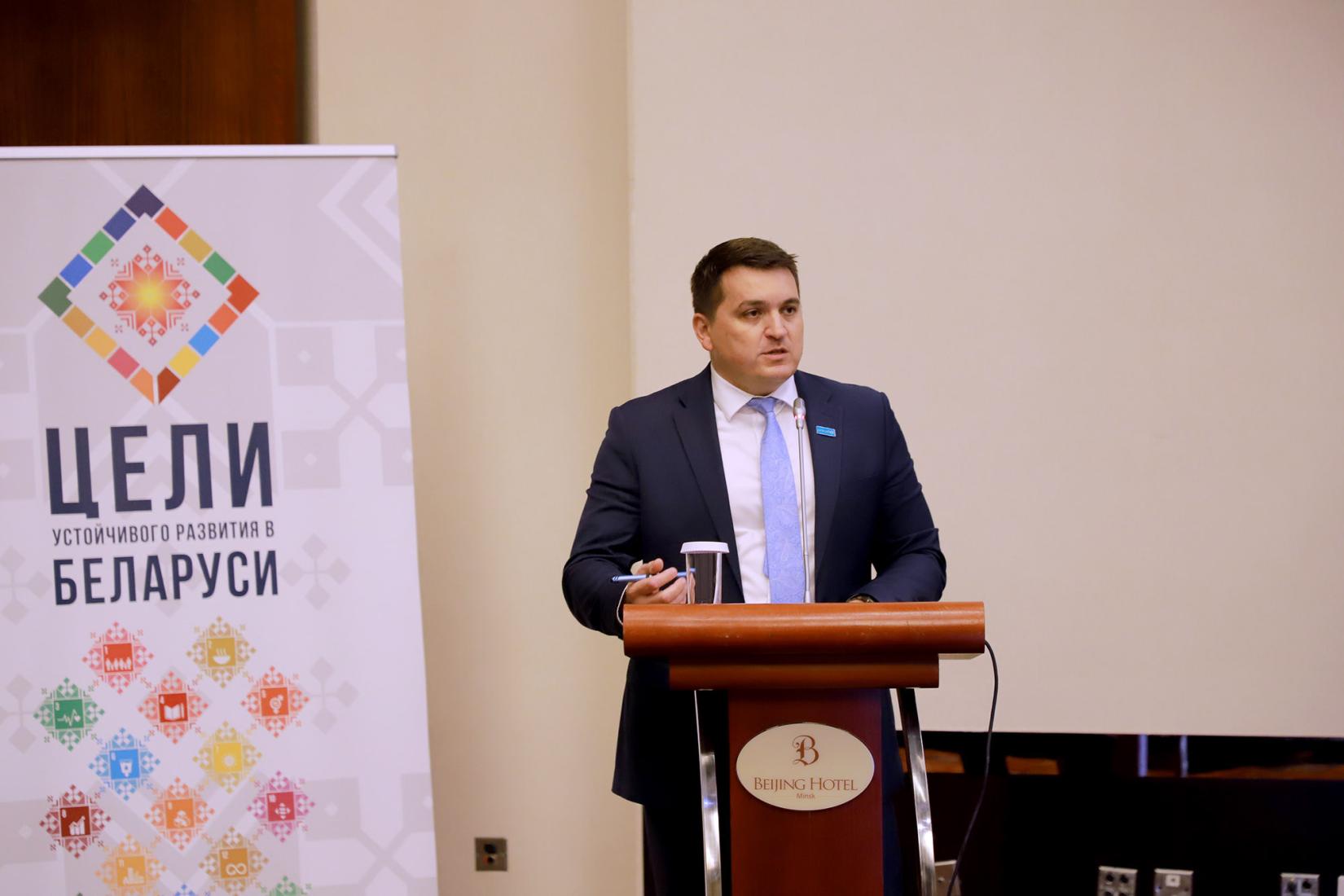
“Continued investment in children, adolescents and young people by the Government of Belarus is key for the achievement of SDGs. Children and youth already take active part in shaping equitable future through sharing their ideas, participation, volunteerism, and building their skills to embrace emerging opportunities and stay resilient to challenges,” said UNICEF Representative Rustam Haydarov.
As the result of the joint work of UN agencies, it is expected that by the year 2025, adolescents, youth, families with children and vulnerable groups will lead safer and healthy lifestyle and have better access to inclusive and quality healthcare services, provided in a gender-sensitive manner; inclusive education, education, focused on the needs of the labor market; strengthened system of social protection, more widespread use of restorative approaches to justice and opportunities to build resilience of families to shocks.
In his review of the UN’s work in digital transformation and social innovations Armen Martirosyan, the UNDP’s Deputy Resident Representative in Belarus, mentioned that UN activities to advance digitalization aim to ensure that digitalization is accessible to all, increasing people's opportunities and well-being, while mitigating cybersecurity and data privacy risks. The review spotlighted the agencies’ contributions to the development of digital solutions for vulnerable groups to facilitate access to services, address the issue of asylum and statelessness, ensure equal access to and safety of Internet technologies. UN worked with national and local partners to advance digital and green technologies for smart small towns development, design digital solutions for hazardous waste management. The focus was also done on the results in fostering education and training of women and girls in information and digital technologies, including women entrepreneurs and girls in STEM.
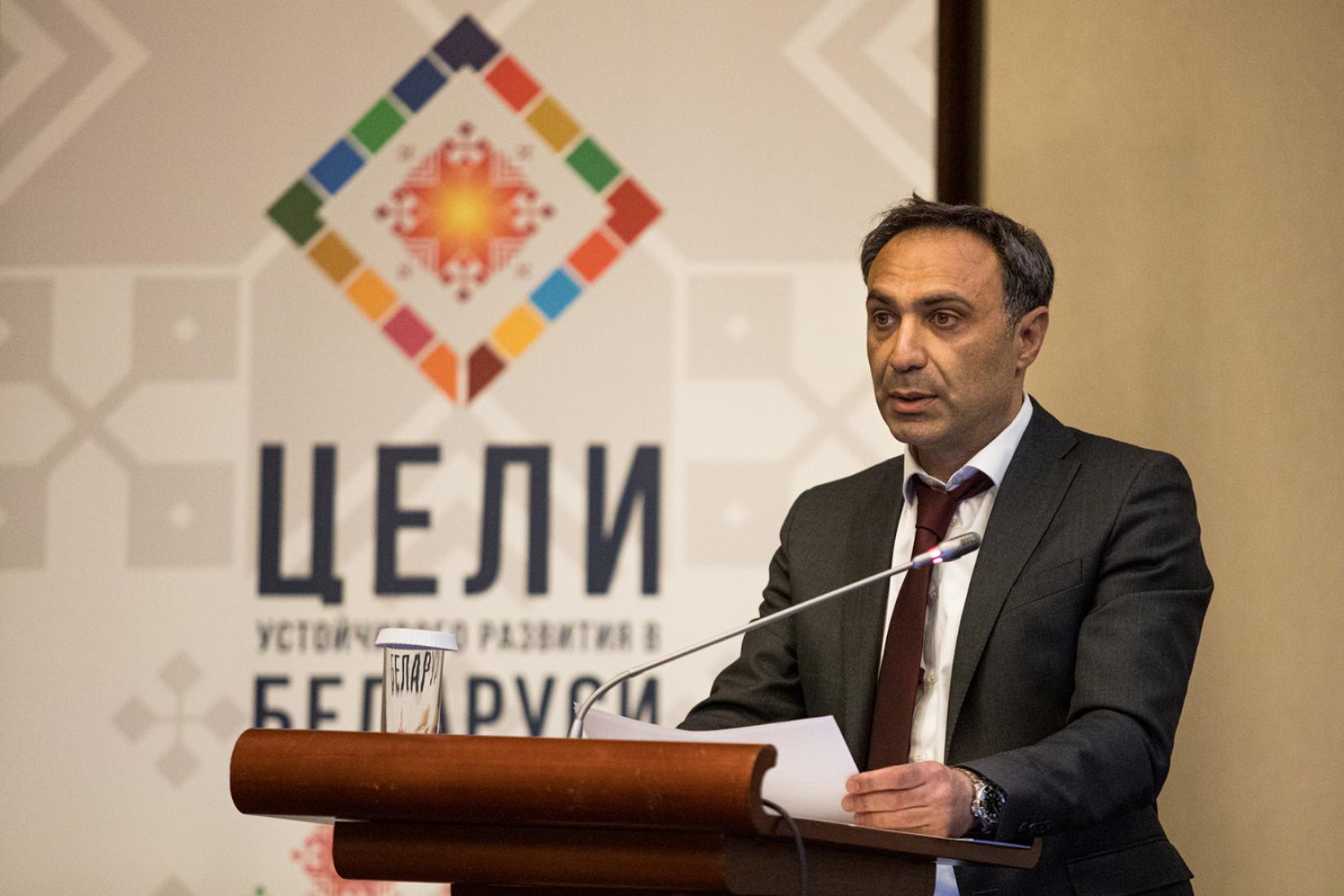
Olga Atroshchanka, Head of UNFPA Office in Belarus, presented the results of UN activities in Belarus aimed at the achievement of gender equitable society.
The work of the UN in Belarus in this area was focused on addressing gender stereotypes and gender-based violence, improving the system for obtaining and use of official data on population dynamics, age and gender sensitive budgeting that takes into account implementation of the SDGs and prioritizes vulnerable groups, gender mainstreaming, including strengthening the role of women entrepreneurs and support for gender equality and the capacity of the national statistical system for the collection, analysis and dissemination demographic data.
By 2025, thanks to improved mechanisms data collection, implementation of policies to ensure gender equality and the introduction of child and gender budgeting, conditions will be created in order to men and women of all ages, including aged 65 years and older, as well as girls and boys, could more effectively exercise their rights and improve their standard of living, including through expanding employment opportunities and improving protection against gender and domestic violence.
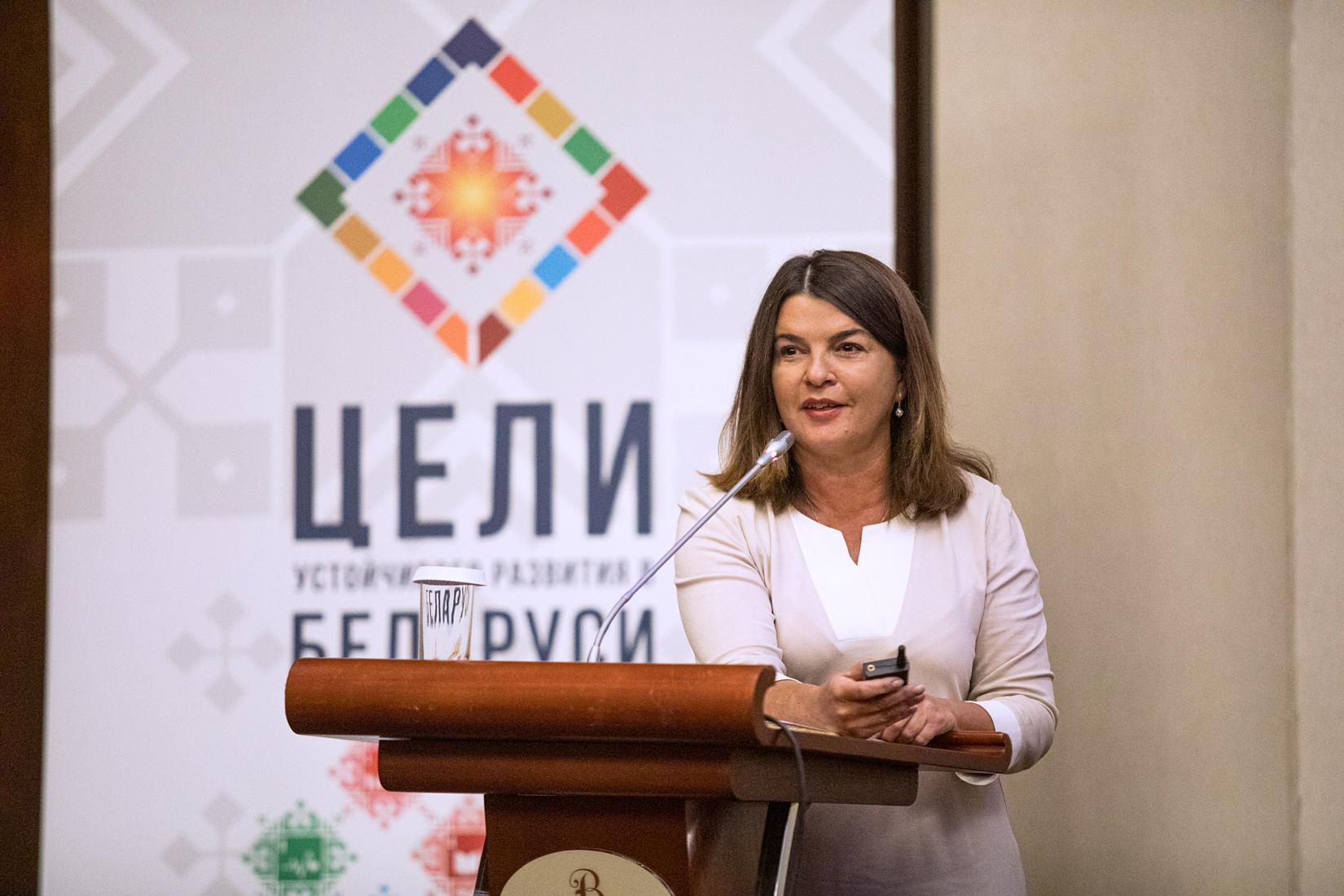
«I am pleased to note that today, all UN agencies in Belarus apply a gender perspective when designing new programs, and integrate it into the monitoring and evaluation systems. And many country authorities and organizations do the same.
Applying age sensitive gender perspective at the planning level means that we understand gender inequalities – different groups of women and men in different ages have different needs, different access to resources and services, and different opportunities and challenges.
Thus, we enable women’s and men’s needs and aspirations to be visible and to be addressed considering them during the implementation of a policy, programme or project, and achieving better results for a better future for all», said Olga Atroshchanka
Violetta Volkova, Officer-in-Charge, IOM Belarus, highlighted the UN measures taken in response to the migration crisis at the Belarus-EU borders.
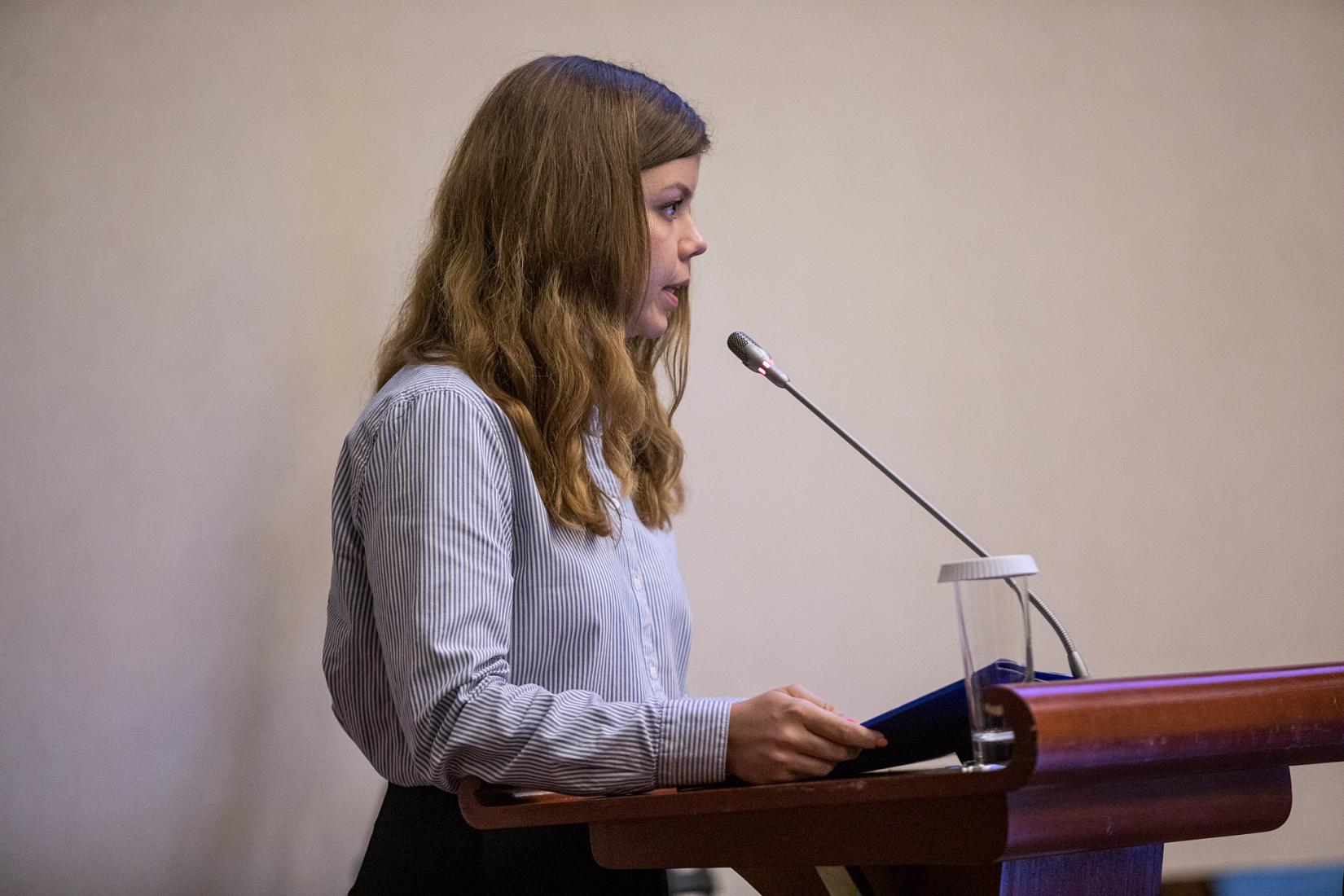
She mentioned that IOM Belarus assessed needs of migrants who were accommodated at the transport logistics center "Bruzgi", and following the centre closure conducted an assessment of profiles, movement patterns, intentions and needs of migrants in vulnerable situations. Food and non-food items were supplied to the migrants until the closure of the centre. Afterwards, IOM continued to provide targeted protection-centered humanitarian assistance through its field offices represented in all regions of the country.
In 2022, with the support of IOM, a record number of 725 migrants voluntarily returned to their countries of origin based on an informed consent and provided the conditions for return in home countries were safe and conducive.
“We are committed to further protect and fulfil the rights of all migrants, regardless of their migration status, at all stages of their journey.”
The UN Belarus Annual Report for 2022 is available at the Publications section of the UN Belarus web site.














